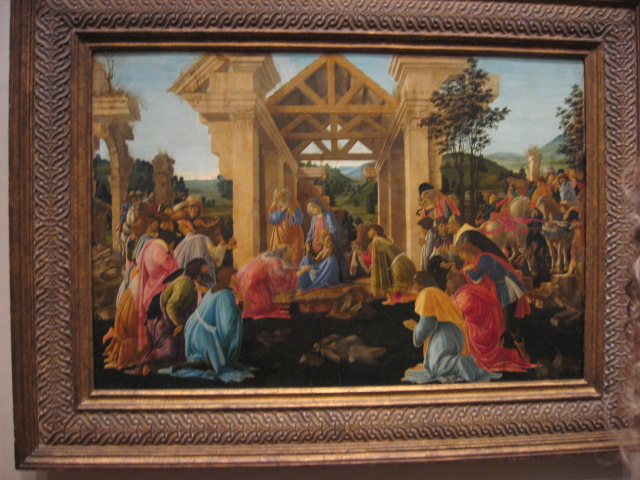Leonardo da Vinci
Italian painter, sculptor, architect, author, engineer, inventor, lutanist, mathematician & scientist
born April 15 1452- died 1519
Born in: Vinci (Florentine province, Tuscany, Italy)
Died in: Amboise (Indre-et-Loire, France)
1. PROLIFIC WORK OF LEONARDO DA VINCI . .
Firstly, because Leonardo became a master in more fields than any other since or before him. Most Geniuses such as Albert Einstein, William Shakespeare or Alfred Hitchcock were masters in just a single field. This simply isn’t the case with Leonardo. No subject matter was beyond his grasp, once he began meticulously dissecting it. This is partly because he more than anyone in his time, did not see subjects disjointed from one-another especially the way we tend to today. For him, art and science in its many forms were inseparable which any of his invention tends to show. The connection between Leonardo Da Vinci and science is also present in any of his painted masterpieces.
As a result of his boundless nature, he explored and mastered subjects as diverse as surgical anatomy, cartography, archaeology and engineering to botany (to just name a few!) whilst also earning his main livelihood from creating painted masterpieces such as the Last Supper painting.
2. EARLY HISTORY OF LEONARDO DA VINCI . .
Secondly, Leonardo was mostly a self taught Genius. His formal education had been very basic and completed at a very young age. His brilliance stemmed not from a natural talent (even though any drawing from his youth is obviously advanced). But his Genius instead stemmed from an insatiable spirit driven to reach a goal that he gave himself from again a very young age. He was so mesmerised by the beauty and workings of nature in Tuscany (his original home) as a child that he chose to learn absolutely everything there was about how nature worked! He decided no secret held by nature would be kept from him. One of Leonardo’s motivations of his inventions was to mimic nature, learn from it or in a sense control it! The true Genius of Leonardo Da Vinci was thus a product of his overall positive and driven attitude with his endless energy flowing from his deep commitment to complete his goal.
3. LEONARDO DA VINCI INVENTION & ORIGINALITY!
Thirdly why Leonardo stands out from other great Geniuses is that he pushed for originality and the invention of cutting-edge methods always.
He also had an imagination that was not afraid of seeing what most would dismiss as the impossible. Instead, armed with his accumulated and growing knowledge earned through real experience and scientific experiment, he strove to recreate his fantasies in reality regardless of if other scholars in the same field could conceive such possibilities.
Leonardo came to be a pioneer in almost every field of study he undertook. For example, informally he is the father of the science of ‘Embryology’ as he was the first to study the human foetus in great detail. He also came up with an evolution theory fundamentally the same as Charles Darwin but over 300 years before him! Any Leonardo Da Vinci invention such as his flying machine (which was similar to the Wright Brothers glider that made aviation history), the military tank, the first scuba diving equipment or his helicopter reflect his hunger to push for originality. These inventions were only reinvented around 400 years after his death in 1519, which cannot easily be said the same for any other known Geniuses.
4. LEONARDO DA VINCI'S STUDY OF EVERYTHING . .
Lastly, Leonardo was a person who undertook many projects simultaneously and successfully, which included both private studies for his own curiosity and those that he sold to patrons. Every artefact he created for his patrons were masterpieces be it a painting or a piece of machinery. (In fact, Leonardo's paintings were mainly created to pay for his living costs, as he preferred to spend his time on private studies of nature instead.) His personal notebooks in which he recorded his thoughts, findings, inventions and even doodling were intended to be reorganised by him and turned into the most comprehensive encyclopaedia of the time (think of the Britannica encyclopaedia but created by the findings of just one person!). View a page of any one of Leonardo Da Vinci's notebooks and you will see ideas, boundless thoughts and experimentation for a multitude of diverse projects.



































.jpg)






.jpg)






















.jpg)









ليست هناك تعليقات:
إرسال تعليق